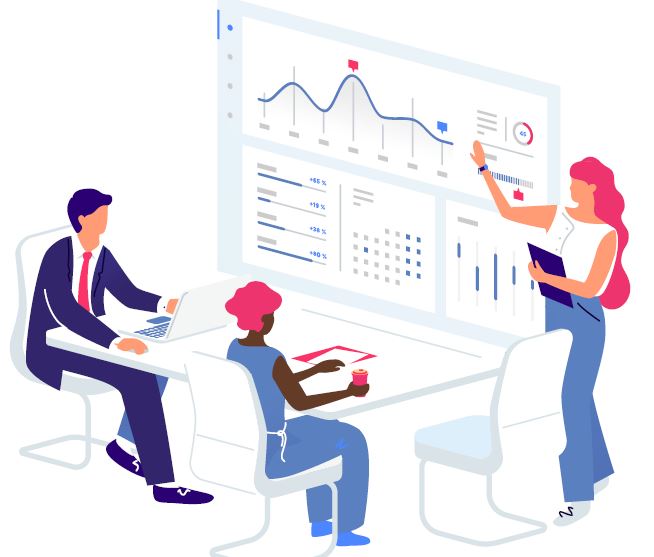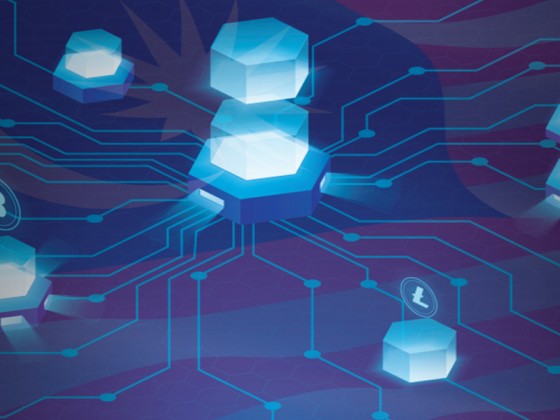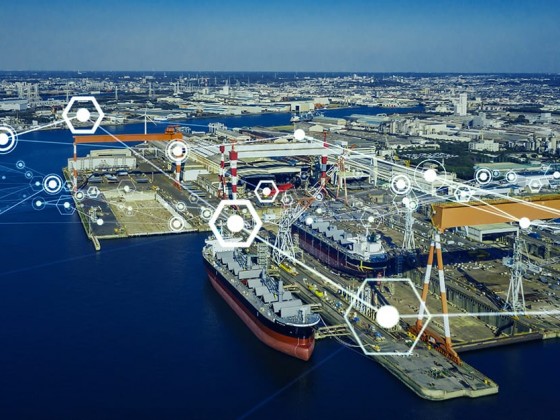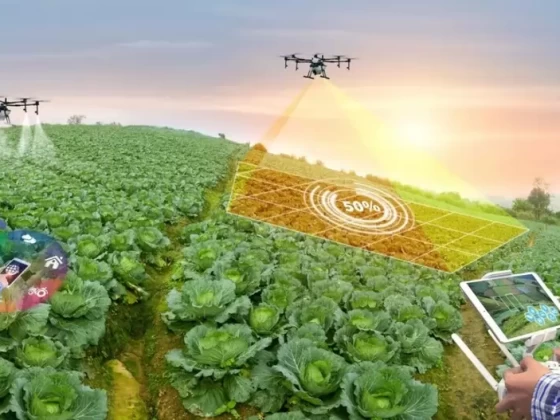
by | Liz Alexander, PhD |Futurist. Author.Consultant. Speaker.
Consulting futurist, Dr. Liz Alexander, is co-founder of Leading Thought, whose clients in the United States, UK, Australia, South Africa and India look to them for ways to ‘futureproof’ their talent and organisations. She combines her futurist skills with a deep understanding of the strategic needs of business, especially as they relate to communicating thought leadership insights and paradigm pioneering ideas.
Dr. Liz is the author/co-author of 21 nonfiction books published worldwide, that have reached close to a million global readers. She contributes to Fast Company’s online platform and writes a blog entitled ‘Preparing for the Unpredictable’ for Psychology Today.
…has continued this year, with all five risks in the environmental category being ranked higher than average for both likelihood and impact over a 10-year horizon.
Some years ago I wrote an article for Fast Company entitled What Faux Futurists Cost the Rest of Us . Its premise was that we should be less inclined to leave the design of our futures solely to the innovators of new technologies and their funders, since past evidence suggested this was unwise. The issues I wanted to open up in that article remain relevant, but it is also timely to explore the increased some might say unprecedented—power that industry and business wields today as a result of the fourth industrial revolution, and the challenges this poses to government.
Coming from an arguably narrow and culturally anomalous worldview, the preferred visions of the future, imagined by those responsible for disruptive technologies, often don’t align with what the rest of us want or need. They also frequently don’t foresee the negative consequences of their innovations.
In my Fast Company article, for example, I cited General Motors which, for their Futurama II exhibit at the 1964 World’s Fair, “(S)howcased a robotic “Jungle Road Builder” intended to delve deep into the last untrammelled jungles of the world, eviscerate everything in its path, and leave behind elevated asphalt superhighways,” according to author Andrew V. Uroskie, writing in his book, Between the Black Box and the White Cube . None of GM’s executives appeared to have considered what this might do to jungle ecology. Yet we are becoming aware today how the landslides and flooding experienced in many parts of the world are a result of indiscriminate deforestation, as well as natural causes.
GM’s earlier vision, at the 1939 World’s Fair, was for the creation of cities, “custom-built for machines” which, one might argue, is a future that has been largely realised and found to be less than satisfying for the average person. But then, can we expect such social considerations from industries primarily concerned with their own commercial interests? Interests that are often not in alignment with the responsibility that government has, to ensure living spaces that focus on the safety, satisfaction and success of human beings, not machines.
Yet it appears not to have been government pressure that put a halt to GM’s early ambitions to decimate vast areas of South American jungle, but the nascent state of technology at that time. With the benefit of hindsight, I imagine we are all grateful for that. For in its 2018 annual Global Risks Perception Survey , the World Economic Forum (in conjunction with universities in Singapore, the U.K. and the U.S.), reports that the environmental risks trend:
The law of unintended consequences
As Mr. Azmil Mohd Amin articulated in his article, Characteristics of Industry 4.0, published in the 21st edition of myForesight magazine, “The Industry 4.0 movement started in Germany, with many of that country’s leading industrial companies demonstrating strong initiatives.” In other words, government hasn’t been leading this charge towards the profound transformation of our economies and societies, as much associated with Industry 4.0 as its promise of sustainable production and manufacturing efficiencies, industry has.
Yet in articulating the preferred futures that come about as a result of such industryled initiatives, we see glaring blind spots with respect to their social implications. The law of unintended consequences or, in the terminology of futurists, 2nd, 3rd and even 4th order effects, states that decisions and actions don’t always result in expected outcomes. And we have considerable evidence of the unintended negative consequences of science and technology’s impact on our everyday lives:
- Who would have thought that the proliferation of digital and video game technology would end up with the World Health Organisation (WHO) classifying gaming addiction as a mental health disorder? How many educationalists are factoring in this unanticipated outcome as they promote “gaming” within online education, and what might be the long-term ramifications of that?
- Who had the foresight to associate mobile phones with the rise in the number of car deaths, fatal crashes and injuries? The WHO issued a 2011 report alerting us to the increasing prevalence of “distracted driving” around the world. According to a separate source, it seems no one realised that “texting while driving would increase the risk of a car accident 23 times.”
- Who might have been prescient enough to foresee the connection between peer-to-peer short-term accommodation, as pioneered by
Airbnb, and a shortage of affordable housing? Yet in discussing a working paper that focused on that issue, the Wall Street Journal pointed out that, “Anything pushing up rent and home prices is a public concern.” It’s just not something that Airbnb is concerned about – and why would they be?
A question of ethics
When it comes to the automotive industry’s development of autonomous cars, whose responsibility is it to anticipate the ethical quandaries inherent in that particular “disruption”? In Australia, as in other countries, the government is trying to get a handle on the life-ordeath decisions that will inevitably arise when algorithms are in control of our vehicles. That debate is “more complex and delicate when real humans are involved” and is being left largely to politicians and ethicists, not the car manufacturers, to determine. Nor should we leave this challenge to them, given the context-dependent nature of the issue. As Sri Widias Tuti Asnam Rajo Intan included in her myForesight article entitled Real Time Object Recognition (Industry 4.0 edition, 2018), Australia has a unique problem with respect to kangaroos, said to be “responsible for 90 percent of collisions between vehicles and animals.” Yet while Swedish car company, Volvo, has developed a system that can identify other kinds of large animals, dealing with one that hops around has so far stumped them. What similar problems might arise when self-driving cars are faced with the equally unpredictable human behaviour of motorcyclists and pedestrians?
According to a report in the Sydney Morning Herald while Australia is ranked 14th out of 20 countries for autonomous vehicle “readiness,” 25 percent of Australians say they can’t wait to drive one. How will the Australian government—or any other, for that matter—address that kind of imbalance?
Which brings us to another challenge to policymakers: Not just anticipating the unintended consequences of technology, but being informed sufficiently to ask the right questions. Following the Cambridge Analytics scandal in which it was determined that Facebook “systematically failed to protect the private information” of the quarter of the world’s population said to use its services, the company’s founder, Chairman and CEO Mark Zuckerberg, was brought before the U.S. Congress. This was according to a report in Time magazine—“a demonstration more than anything else that lawmakers know very little about the social media platforms they hope to regulate.” Yet, as this example indicates, the government blithely expected Facebook to do the right thing. As one US representative said to Zuckerberg, having “that much influence comes with enormous social responsibility, on which you have failed to act and to protect and to consider.” But is it not somewhat naïve of politicians to expect this from a commercial enterprise? Is social responsibility and protecting its citizens not government’s role?
Let me offer one further example, that speaks directly to the challenges and unintended consequences that may come about when focused purely on Industry 4.0’s anticipated benefits of increased productivity and efficiencies. I recently visited a charcoal factory close to the Matang Mangrove Forest Reserve in Kuala Sepetang, Perak. As Mr. Chuah, our host, explained, the factory has been around since the 1930s and has used the same technology since, to provide high-quality charcoal principally for the Japanese filter and pharmaceutical industries. Apparently it takes many years of human experience and expertise, observing the texture of the smoke that escapes from the chimneys, to determine when the charcoal is ready to be released from the sealed brick kilns. Leading Mr. Chuah to claim (proudly, I surmised), that the process is not something that could be automated.
I certainly hope that it isn’t, regardless of the lack of efficiency involved. Because would anyone bother to visit such a place and marvel at the human ingenuity inherent in such an activity, if it were run by robots? When it comes to the 2nd and 3rd order effects of the decisions being made, should not government be concerned also with those experiences that give joy, sociability and meaning to our lives and work? Shouldn’t relationships receive just as much credence as transactions? Who is having that debate as we hear continually about plans to disrupt the food, hospitality, and medical care industries (among others), with robots?
As for industry’s promise that automation, and the attendant loss of jobs, will lead to better social outcomes and give people more time for leisure, self-improvement, or to spend time with loved ones, let us not forget that this promise has been made before—but not yet realise —by technologies including the telephone and various automated home appliances. And the “paperless office” promised by computerisation? That remains a 30-year old pipe-dream.
Leading the way
In the article, Musings with Datuk Dr. Mazlan Othman in myForesight’s Envisioning Malaysia 2050 edition, Malaysia’s first astrophysicist and Council Member for the Academy of Sciences Malaysia (ASM), asked: “If all you ever do is play catch-up, will you ever be a game changer?”
If government leaves industry to determine their preferred futures on behalf of the rest of us, they are likely to be left playing catch up. Especially with regards to dealing with the unintended social and other broader consequences of those commercial decisions. While those in the fields of science and technology are fond of talking about the country becoming a smart community, isn’t government’s role to ensure we also live in one that prioritises heart and soul? It may be that leading this charge will be government’s greatest challenge to date.










